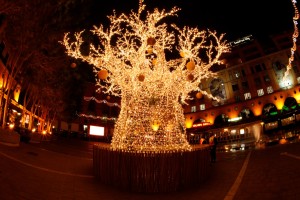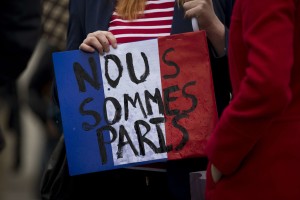From the warmth of Peru -- both literally and culturally -- we head to an unlikely place to find Christmas: Japan. Although less than 1% of Japanese identify themselves as Christian, Christmas is one of a number of Western imports, including Halloween, now popular there. My friend Chester tells me many Japanese are not even aware of the Christ part of Christmas -- it's simply a good excuse to celebrate a cozy, festive time, even though December 25 is not an official holiday in Japan. Who doesn't enjoy the lights and glitter of Christmas, and the Japanese know how to do it. Decorations can be found at most any department store, and (mostly artificial) Christmas trees go up all over the country.
There is one Christmas tradition in Japan I find HILARIOUS: fried chicken. Many Americans may not be aware of these fun KFC facts:
- KFC is the second largest restaurant chain the world (after McDonald's, of course)
- Japan is KFC's third largest market (after China and the US) with about 1,200 stores
- Christmas Day is KFC's busiest day of the year in Japan
For dessert on Christmas Eve, so-called Christmas cakes are served, usually some sort of sponge cake topped with whipped cream and strawberries. Gifts are often exchanged, but usually just for the children.
Christmas Eve has also taken on a Valentine's Day aspect in recent years: couples go out on the town for a romantic dinner, and reservations must be made months in advance.
Another aspect I find amusing is how they say "Merry Christmas" in Japanese. I have noticed before that the Japanese will often take an English word or phrase and slightly modify it to fit their phonetic system. (Actually, all languages do that to one extent or another.) So Merry Christmas is rendered:
Meri Kurisumasu!
Look closely at the word Kurisumasu and you'll find all the phonetic components of the word "Christmas". Brilliant.
Next stop on Day 9: a country where Christmas is celebrated, but not in December!
































